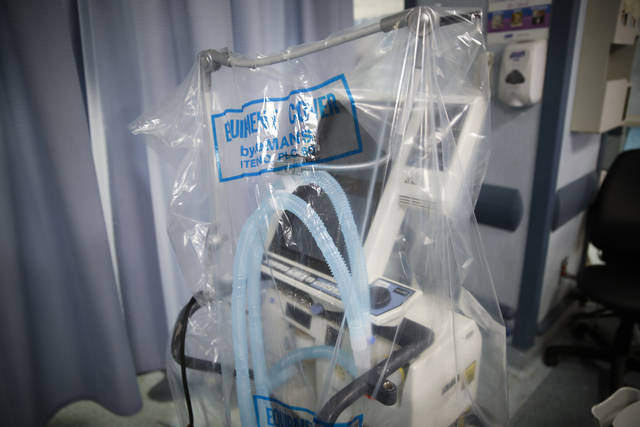Researchers from Carnegie Mellon University and the University of Pittsburgh are teaming up to address the ventilator shortage in the U.S. brought on by the covid-19 pandemic.
Ventilators, mechanical devices used to move breathable air into and out of the lungs, are in huge global demand as the coronavirus attacks patients’ lungs. Hospitals and governments across the country have reported critical shortages of the machines as they become overwhelmed with patients, making it difficult to treat the disease. Normally, ventilators can cost upwards of $20,000. With high demand, the prices are sometimes higher.
The Pittsburgh researchers are creating a device, called the Roboventilator, which will use robotic technologies and advanced sensors to function. The Roboventilator will have greater capabilities than the current low-cost ventilator alternatives being approved by the Food and Drug Administration to lessen the shortage, CMU officials said.
Researchers expect units to cost between $500 and $750 each.
“All of us are aware that ventilators are essential for treatment of the patients who are seriously ill from covid-19, and we know that this pandemic will be with us for a long time, with the potential for several waves of disease,” said Howie Choset, a professor of robotics at CMU.
Roboventilator has a modular design with parts assembled through a high degree of automation, which keeps the cost of production low, officials said.
“We’re convinced the need for low-cost, easily deployable, fully functional ventilators is not limited to just this moment or just this disease,” Choset said. “This is a machine that could save lives from emerging pathogens we haven’t even encountered yet, or help provide a care option to patients in resource-stretched health systems around the world.”
Choset teamed up with Keith Cook, a CMU professor of biomedical engineering who developed the Roboventilator’s air management controls. The two are working with pulmonary critical care physician Jason Rose, an assistant professor of medicine and bioengineering at Pitt.
Rose makes frequent rounds in the ICU, working with patients experiencing respiratory problems and using ventilators. Rose said this has helped the team identify weaknesses in other low-cost devices and look for ways to make the Roboventilator as functional as possible.
“I’m someone who is one of the end users of a mechanical ventilator trying to help patients with respiratory failure,” Rose said in an interview.
The team is designing the Roboventilator with global supply-chain limits in mind. They are working with a manufacturing company, Foxconn, for production and pursuing sponsors for funding. In the meantime, the researchers have already begun a crowdfunding campaign to set the project in motion.








